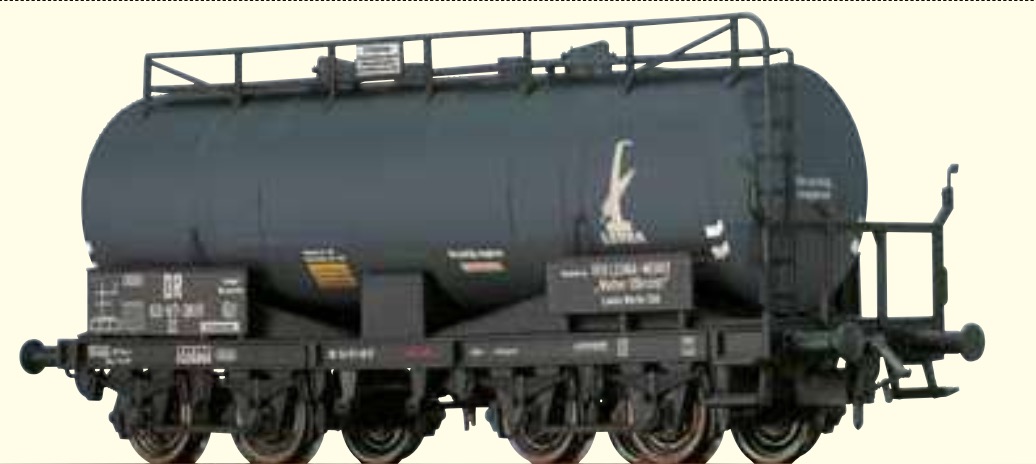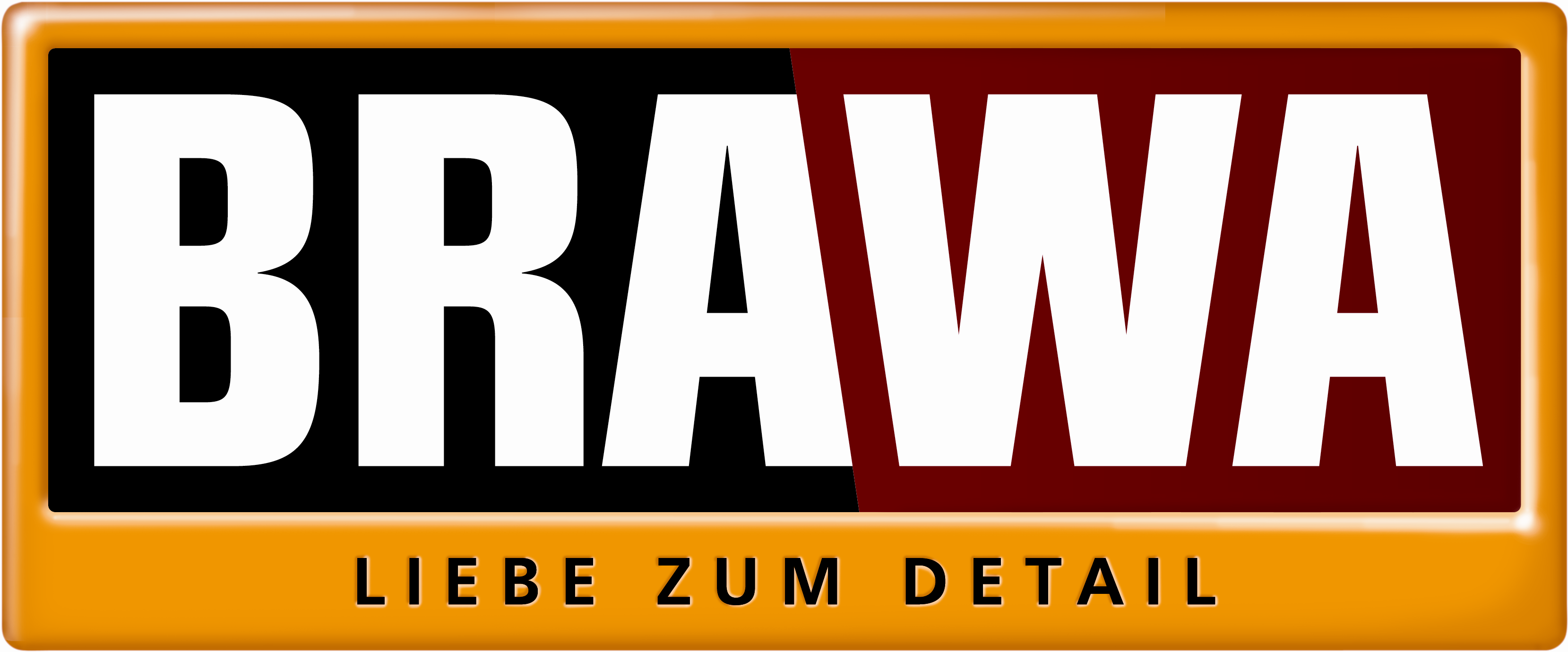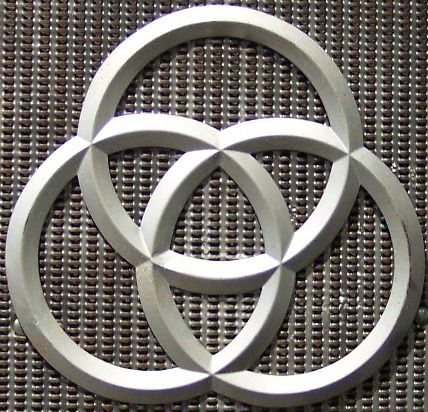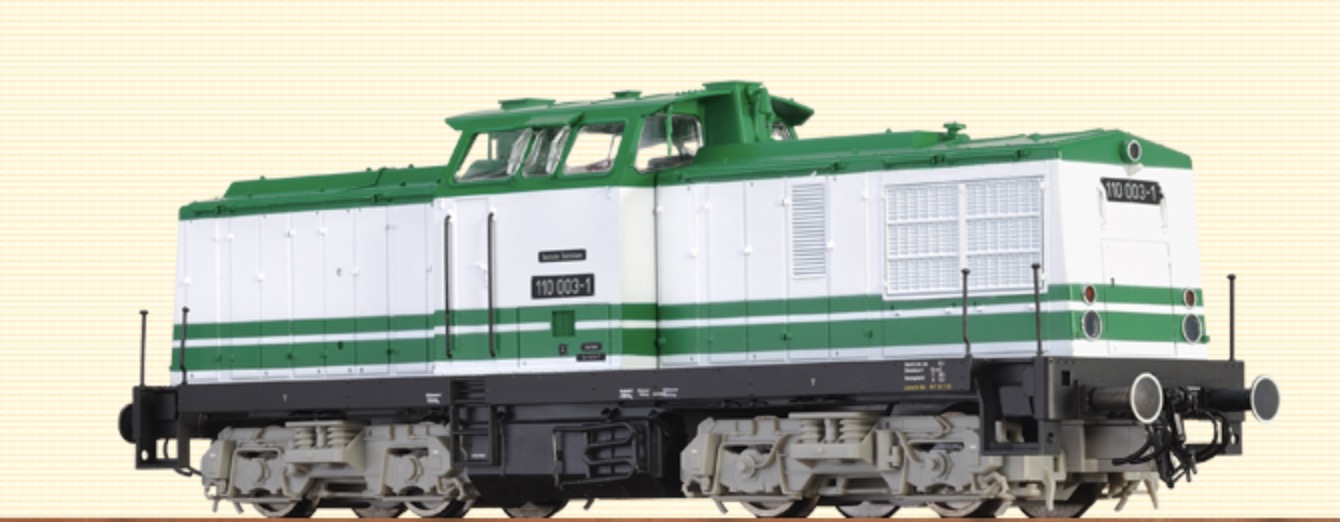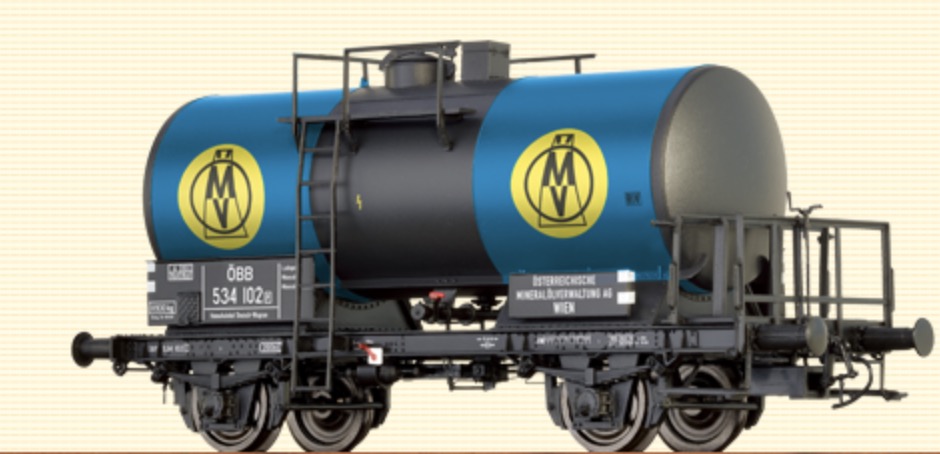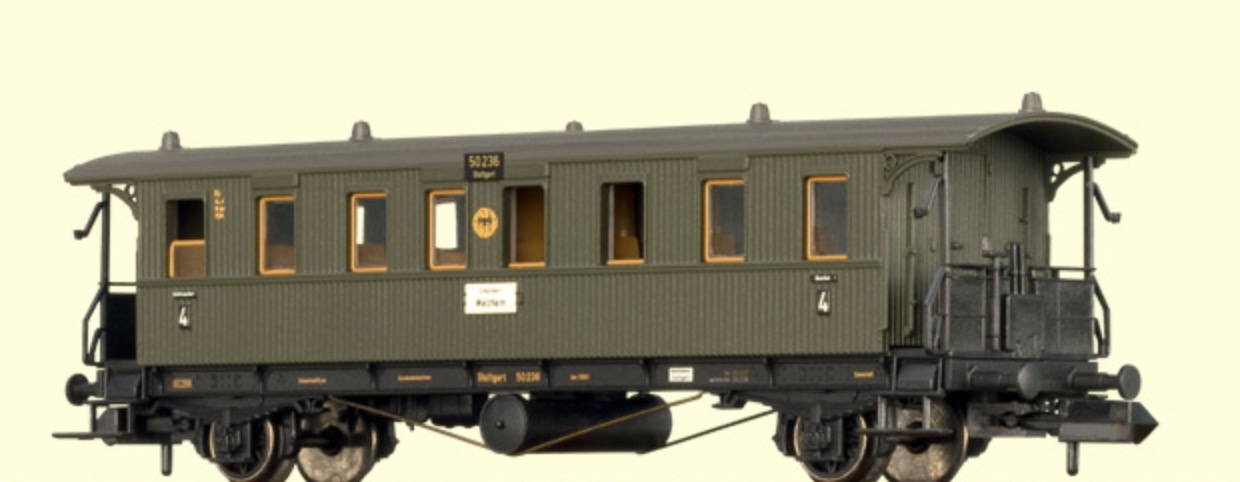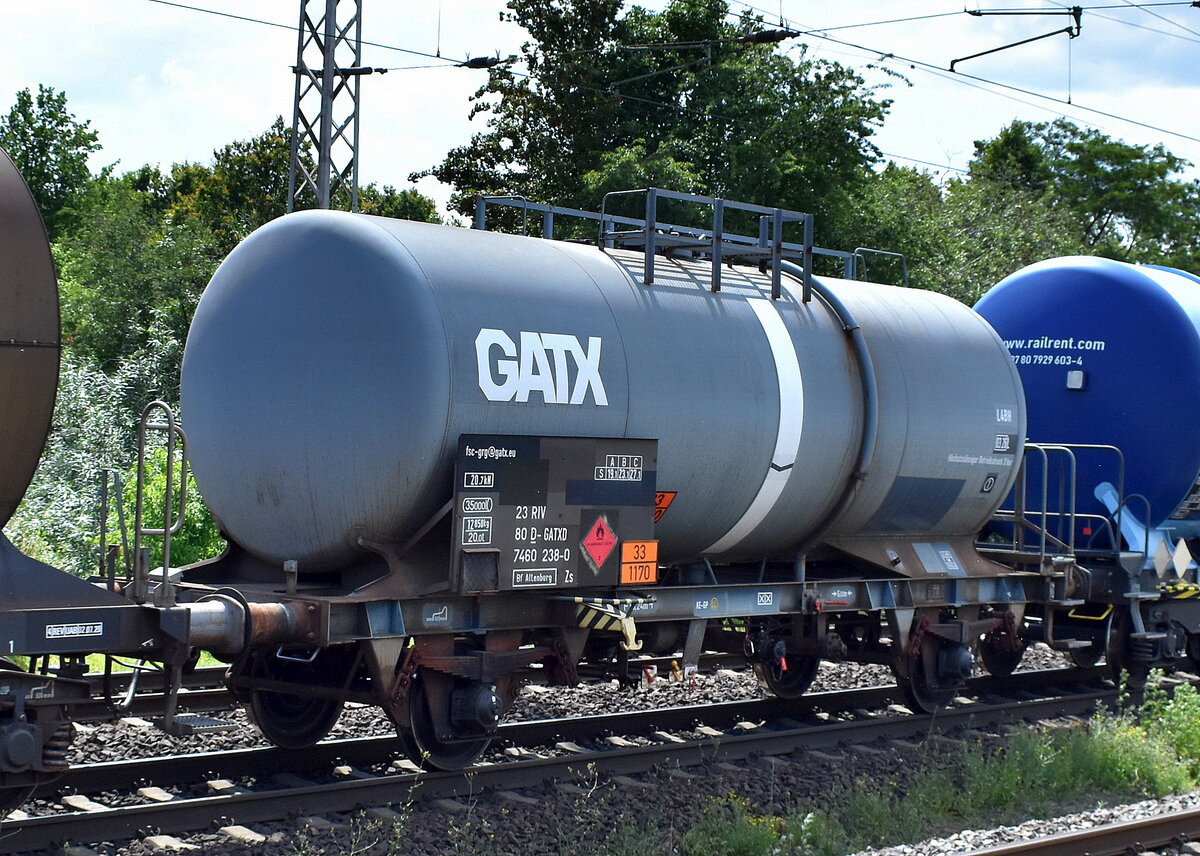Prototype History: Krupp has produced Genus Z tank cars in various sizes since the end of the second world war. Their 2-axle version is appropriate for smaller loads.
Road Name History: 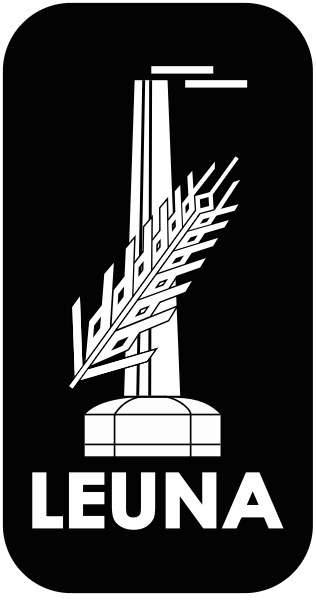 The Leuna works (German: Leunawerke) in Leuna, Saxony-Anhalt, is one of the biggest chemical industrial complexes in Germany.The site, now owned jointly by companies such as Total S.A., BASF, Linde AG, and DOMO Group, covers 13 km2 and produces a very wide range of chemicals and plastics.
The Leuna works (German: Leunawerke) in Leuna, Saxony-Anhalt, is one of the biggest chemical industrial complexes in Germany.The site, now owned jointly by companies such as Total S.A., BASF, Linde AG, and DOMO Group, covers 13 km2 and produces a very wide range of chemicals and plastics.
Ammonia is an important intermediate product for the manufacture of nitric acid and other nitrogen compounds, needed to produce fertilizers and explosives in particular. The increasing demand for explosives during World War I exceeded the ammonia production capacities of the Oppau works of BASF, who owned the patents for the Haber process. Leuna in central Germany, out of range of French aircraft, was selected as the location of a second plant named Badische Anilin- und Sodafabrik, Ammoniakwerk Merseburg. Construction started on 25 May 1916, and the first tank car with ammonia left the works in April 1917.
After German reunification in 1990, the Leuna works were divided into several smaller units that were sold to several companies, among them Total S.A., BASF, Linde AG, and Belgian DOMO Group. Common utilities for the companies are provided by InfraLeuna.[10] With the closure of unprofitable plants and general modernization, the number of employees was reduced significantly from 28000 (1978) to 9000 in 2014. QUINN Chemicals invested in a plant to manufacture methyl methacrylate (MMA) but construction has halted as of January 2009 due to heavy cost overruns.
Chancellor Helmut Kohl mediated the transfer of the Leuna oil refinery to French company Elf Aquitaine (who later became part of Total) in 1990/1991. Dubious transactions at that time led to the so-called Leuna affair and criminal proceedings against manager Alfred Sirven. In 1997, the new refinery MIDER (Mitteldeutsche Erdoel-Raffinerie), now TRM (Total Raffinerie Mitteldeutschland) started production after two and a half years of construction time. It represents the largest direct investment of a French company in the new states of Germany and was supported by an EU state aid of 1400 million Deutsche Mark, corresponding to 27% of the total investment.With the construction of new plants in an area named Leuna III, the industrial complex has expanded towards the village of Spergau.From Wikipedia

Ammonia is an important intermediate product for the manufacture of nitric acid and other nitrogen compounds, needed to produce fertilizers and explosives in particular. The increasing demand for explosives during World War I exceeded the ammonia production capacities of the Oppau works of BASF, who owned the patents for the Haber process. Leuna in central Germany, out of range of French aircraft, was selected as the location of a second plant named Badische Anilin- und Sodafabrik, Ammoniakwerk Merseburg. Construction started on 25 May 1916, and the first tank car with ammonia left the works in April 1917.
After German reunification in 1990, the Leuna works were divided into several smaller units that were sold to several companies, among them Total S.A., BASF, Linde AG, and Belgian DOMO Group. Common utilities for the companies are provided by InfraLeuna.[10] With the closure of unprofitable plants and general modernization, the number of employees was reduced significantly from 28000 (1978) to 9000 in 2014. QUINN Chemicals invested in a plant to manufacture methyl methacrylate (MMA) but construction has halted as of January 2009 due to heavy cost overruns.
Chancellor Helmut Kohl mediated the transfer of the Leuna oil refinery to French company Elf Aquitaine (who later became part of Total) in 1990/1991. Dubious transactions at that time led to the so-called Leuna affair and criminal proceedings against manager Alfred Sirven. In 1997, the new refinery MIDER (Mitteldeutsche Erdoel-Raffinerie), now TRM (Total Raffinerie Mitteldeutschland) started production after two and a half years of construction time. It represents the largest direct investment of a French company in the new states of Germany and was supported by an EU state aid of 1400 million Deutsche Mark, corresponding to 27% of the total investment.With the construction of new plants in an area named Leuna III, the industrial complex has expanded towards the village of Spergau.From Wikipedia
Brand/Importer Information: Brawa Artur Braun Modellspielwarenfabrik GmbH & Co. was founded in 1948 by Artur Braun in Waiblingen, Germany, to distribute model trains from other toy makers; eventually they began to manufacture their own lighting accessories such as streetlights and signals. In 1963 they acquired the complete line of motorized trolleybus and ski lift models from Eheim. They also began to expand their own line to include scenery items, and by 1993 they'd added locomotives and rolling stock to their product range. This medium-sized business is today jointly managed by the second and third generations of the Braun family: Günter Braun, son of the founder, and his daughter Katrin Braun are the company's managing partners.
Brawa range covers HO, O and N scales. The N scale range is focused on European rolling-stock, German locomotives and accessories like signals, streetlights, clocks and telephone booths.
Here is how the company describes itself:
At BRAWA, continuity and sustainable thinking and action - as the particular strengths of a family business - have a double impact. Changes are carefully considered and strategic decisions taken on the basis of a long-term vision, thus enabling the company to respond quickly and deliberately to the demands of the market. In addition, cross-generation collaboration ensures a vibrant coexistence of tradition and innovation.
In short, our future course is set and all signals are pointing towards continuity and growth. Our presence at our site in Remshalden shows our commitment to this area and highlights the sustainable nature of our company's location in the region. Sustainability is, as it were, an intrinsic value of our family business.
Brawa range covers HO, O and N scales. The N scale range is focused on European rolling-stock, German locomotives and accessories like signals, streetlights, clocks and telephone booths.
Here is how the company describes itself:
At BRAWA, continuity and sustainable thinking and action - as the particular strengths of a family business - have a double impact. Changes are carefully considered and strategic decisions taken on the basis of a long-term vision, thus enabling the company to respond quickly and deliberately to the demands of the market. In addition, cross-generation collaboration ensures a vibrant coexistence of tradition and innovation.
In short, our future course is set and all signals are pointing towards continuity and growth. Our presence at our site in Remshalden shows our commitment to this area and highlights the sustainable nature of our company's location in the region. Sustainability is, as it were, an intrinsic value of our family business.
Item created by: CNW400 on 2023-08-01 10:58:02. Last edited by gdm on 2023-08-22 09:35:57
If you see errors or missing data in this entry, please feel free to log in and edit it. Anyone with a Gmail account can log in instantly.
If you see errors or missing data in this entry, please feel free to log in and edit it. Anyone with a Gmail account can log in instantly.


